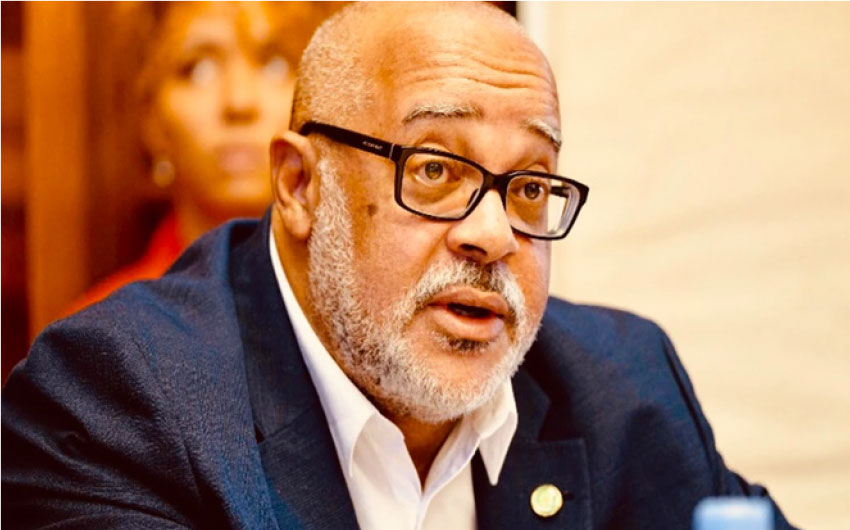Member States of the Organization of Eastern Caribbean States (OECS) are set to benefit from the implementation of two European Union (EU) funded projects: The Biodiversity Support Programme for ACP Coastal Environments (BioSPACE) and the Integrated Landscape Approaches and Investments in Sustainable Land Management in the OECS (ILM).
BioSPACE contributes to the sustainable development of Small Island Developing States and coastal countries within the African Caribbean and Pacific Group of States (ACP). It also supports the SAMOA Pathway through improving the management and sustainable use of coastal and marine resources.

The ILM project, which complements BioSPACE and officially commenced in 2020, aims to optimize the contribution of land to agriculture, food security, climate change mitigation and adaptation, and the preservation of ecosystems and the essential services they provide. The project will contribute to climate-smart and sustainable agriculture farming systems and enhancement of cross-sector approaches to land use planning and management. It will also support National Adaptation Plans (NAPs), Nationally Determined Contributions (NDCs), and National Biodiversity Strategies and Action Plans. In addition, it will contribute to curbing deforestation and forest degradation by reducing deforestation and forest degradation emissions, and strengthen ecosystem management in general.
The first joint Project Steering Committee Meeting of the OECS Environmental Sustainability Division for the BioSPACE and ILM projects was held on 10 March 2021, with key decision-makers within the sector along with officials of the OECS Commission and the EU participating.
Addressing the virtual meeting participants, Director General of the OECS, Dr. Didacus Jules, highlighted the importance of these projects to the sustainability of the Caribbean Region’s ecosystems.
He noted that, “One must bear in mind that in many instances, biodiversity and diverse ecosystems contribute to our social well being and our economic prosperity through the services they provide. Consider further that the loss of such diversity in nature because of the impacts of climate change and other natural and human induced hazards threatens the existence of flora and fauna species and causes loss of ecosystem functions.” He added that, “The Caribbean, has been identified as one of the 34 top global biodiversity hotspots due to the real threats of biodiversity loss and extinction and given the unique flora and fauna of the region.
This means that urgent measures must be employed to mitigate further loss of biodiversity treasure” EU Ambassador to Barbados, The Eastern Caribbean States, the OECS and CARICOM/CARIFORUM, Małgorzata Wasilewska, emphasized the importance of such initiatives, giving a stark reminder that, “When scientific studies tell us that we have wiped out 60% of the planet’s biodiversity during the last 50 years only, this should be more than a wake up call.” However, she reminded that, “There is hope, but to keep this hope alive, any effort counts – at personal local, national or global level.”
In underlining the EU continued championing of climate change action and adaptation in the Caribbean Region, its strong partnership with the OECS, Ambassador Wasilewska reaffirmed,
“The European Union continues to trust the good work of the OECS and it renewed commitment, through projects such as these, to ensure an even more resilient region. These two projects are well transmitting our message, whether you consider your countries, as being small island states or large ocean states, we need to do a lot of work to preserve them. The European Union is a trustful partner to count on in this endeavour.
The Biodiversity Support Programme for ACP Coastal Environments (BioSPACE) and the Integrated Landscape Approaches and Investments in Sustainable Land Management in the OECS (ILM) will run for five years.










![.[L-R] Parliamentary Representative for Castries Southeast, Lisa Jawahir & Talk show host, Timothy Poleon](https://thevoiceslu.com/wp-content/uploads/2026/02/Lisa-Jawahir-Timothy-Poleon-380x250.jpg)
![Public Service and Utilities Minister Stephenson King delivered remarks [Photo credit: VP]](https://thevoiceslu.com/wp-content/uploads/2026/02/Stephenson-King-380x250.jpg)

